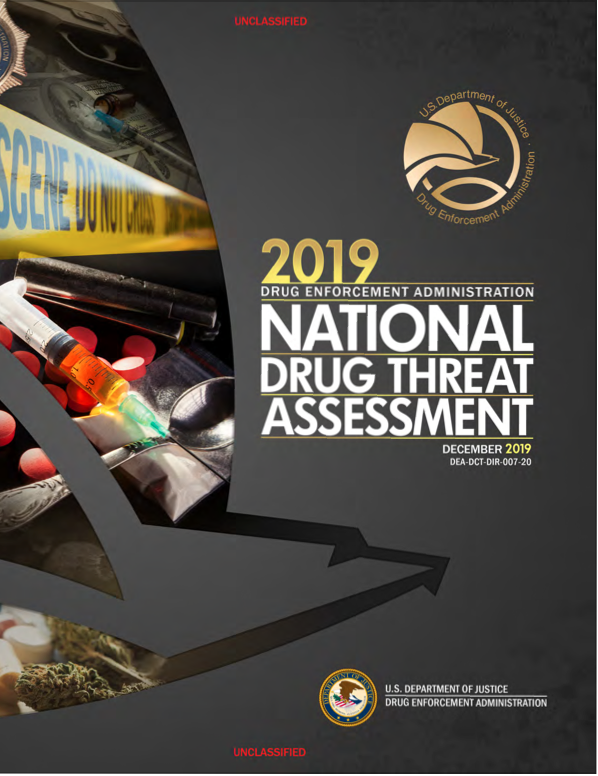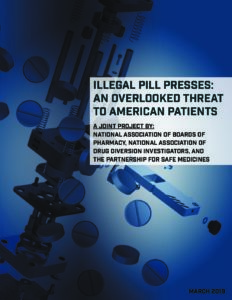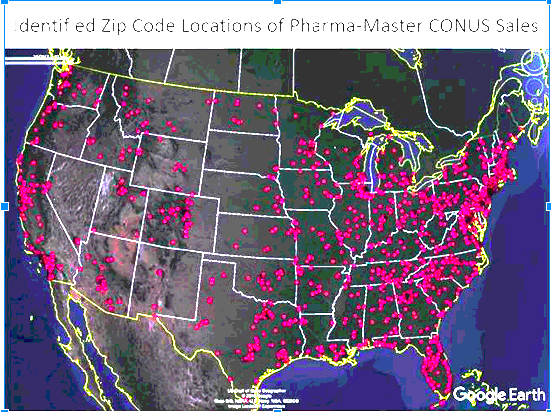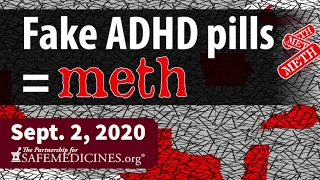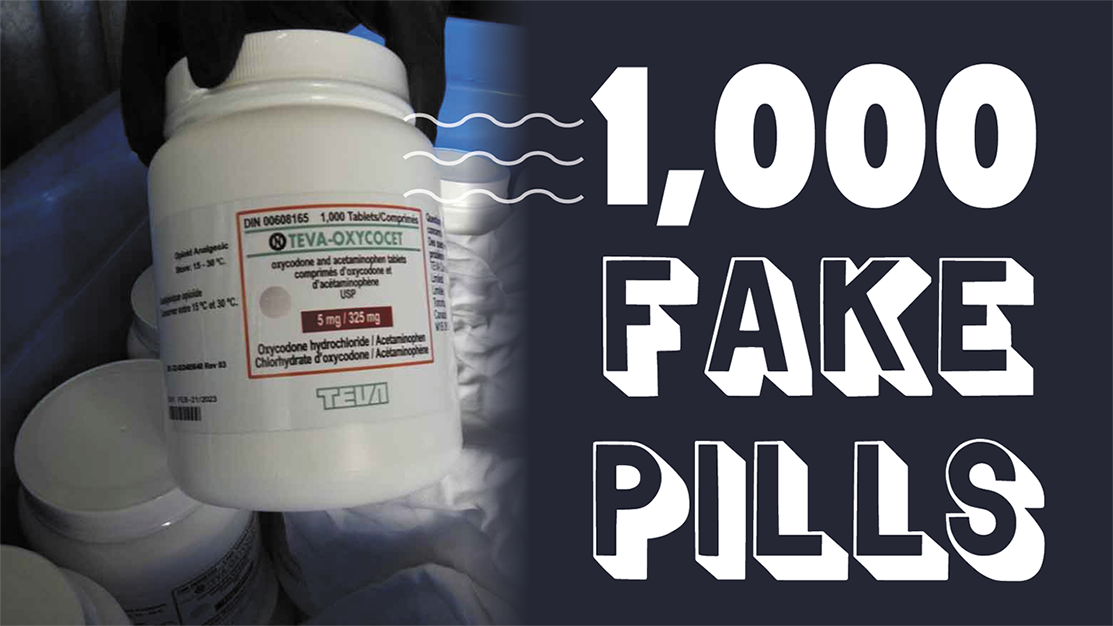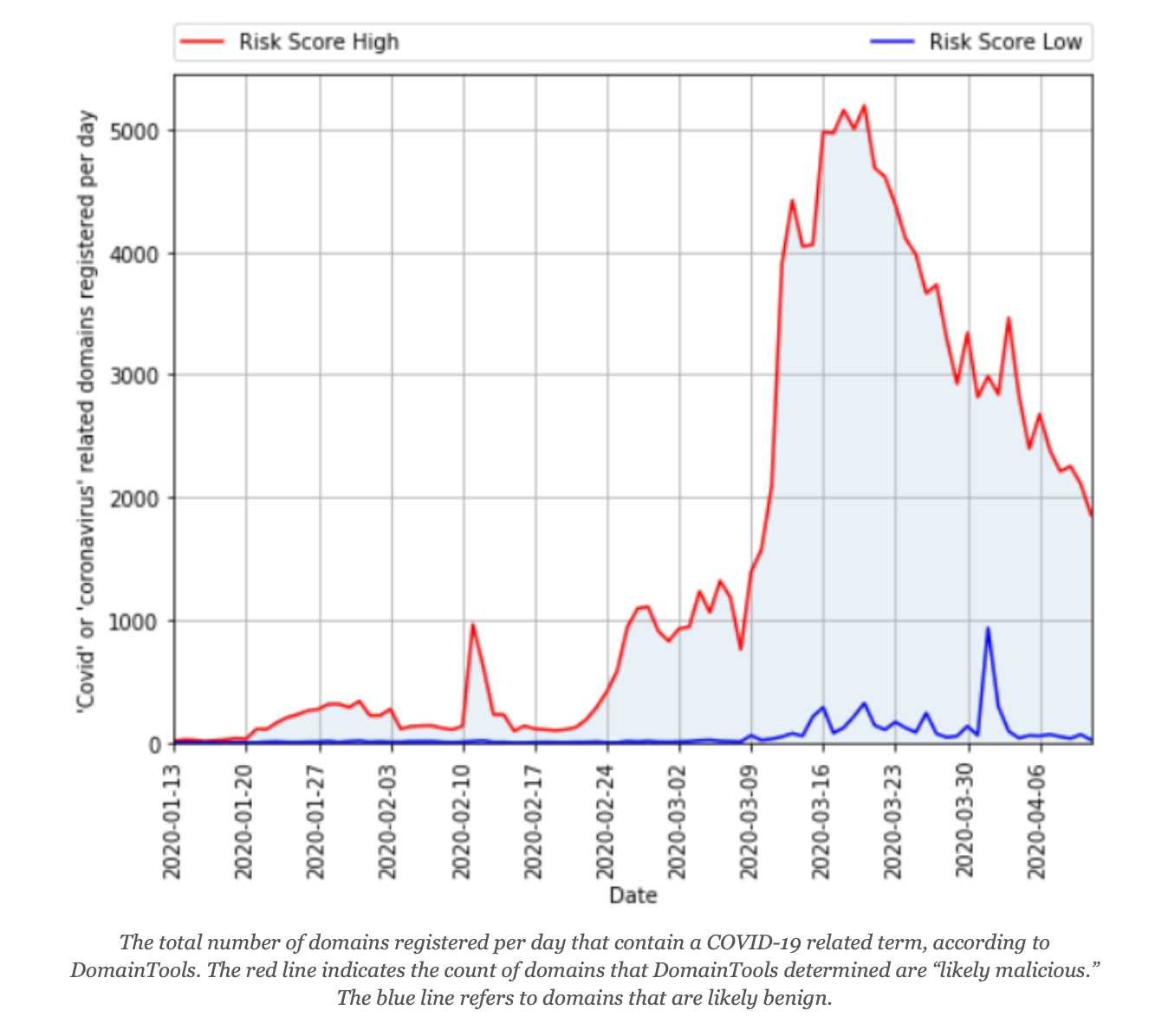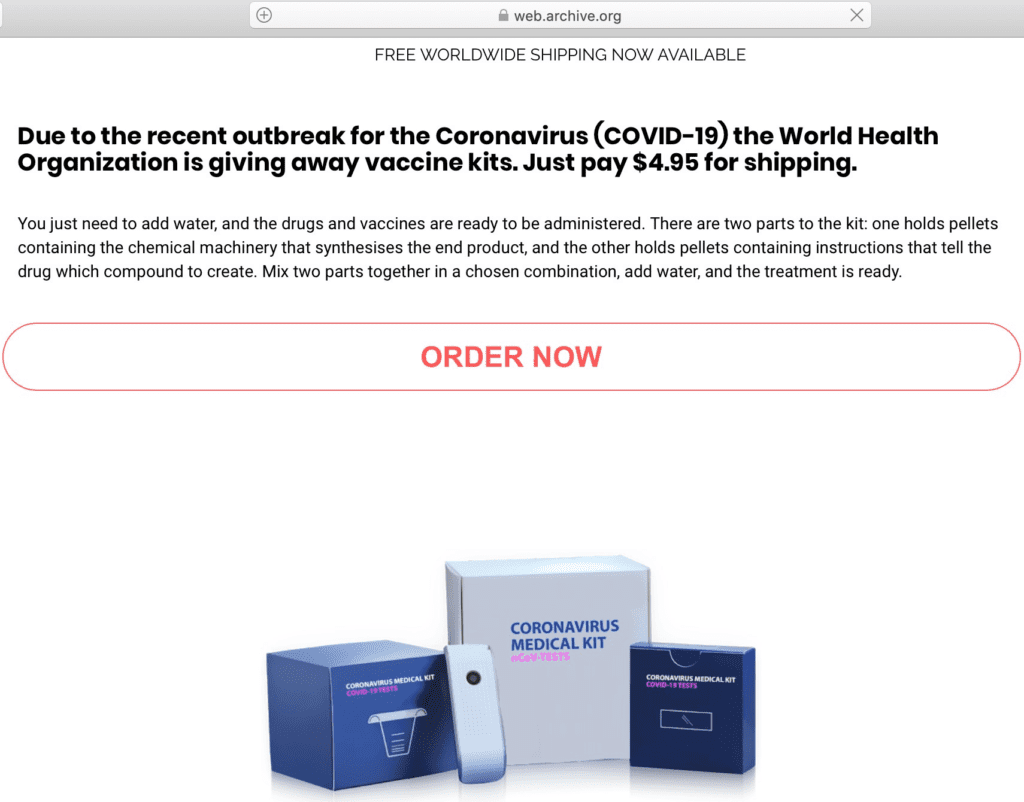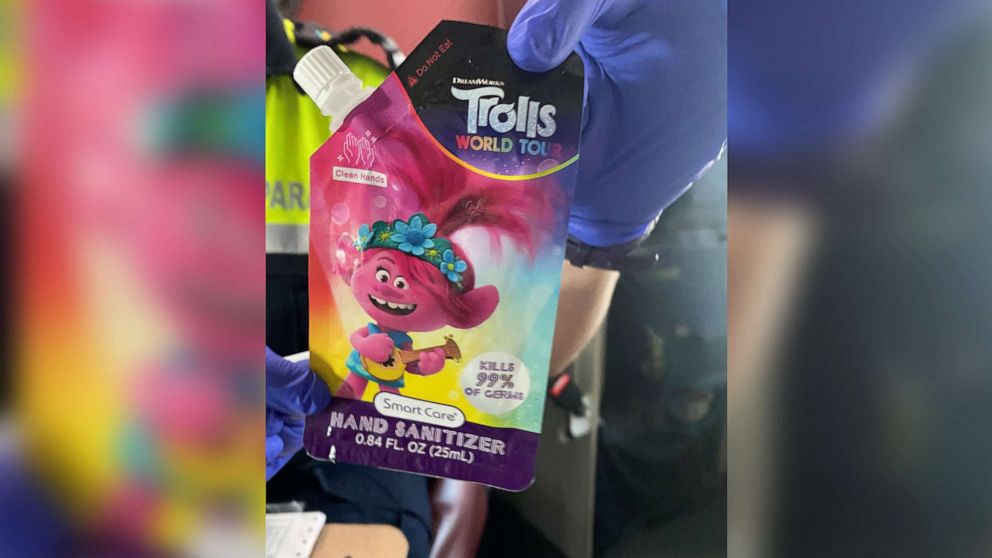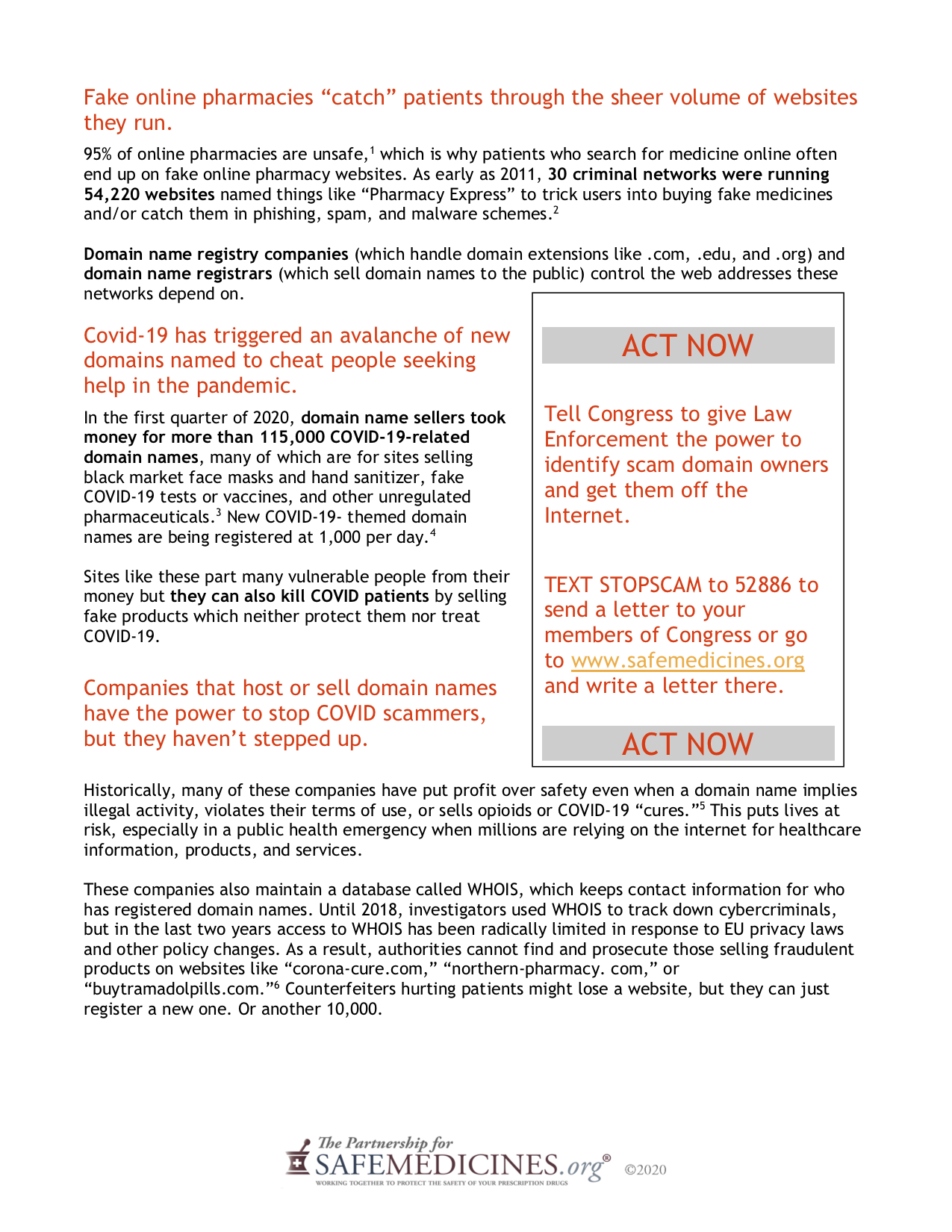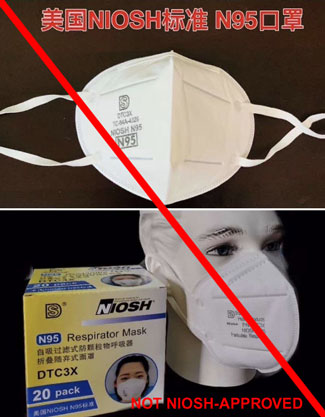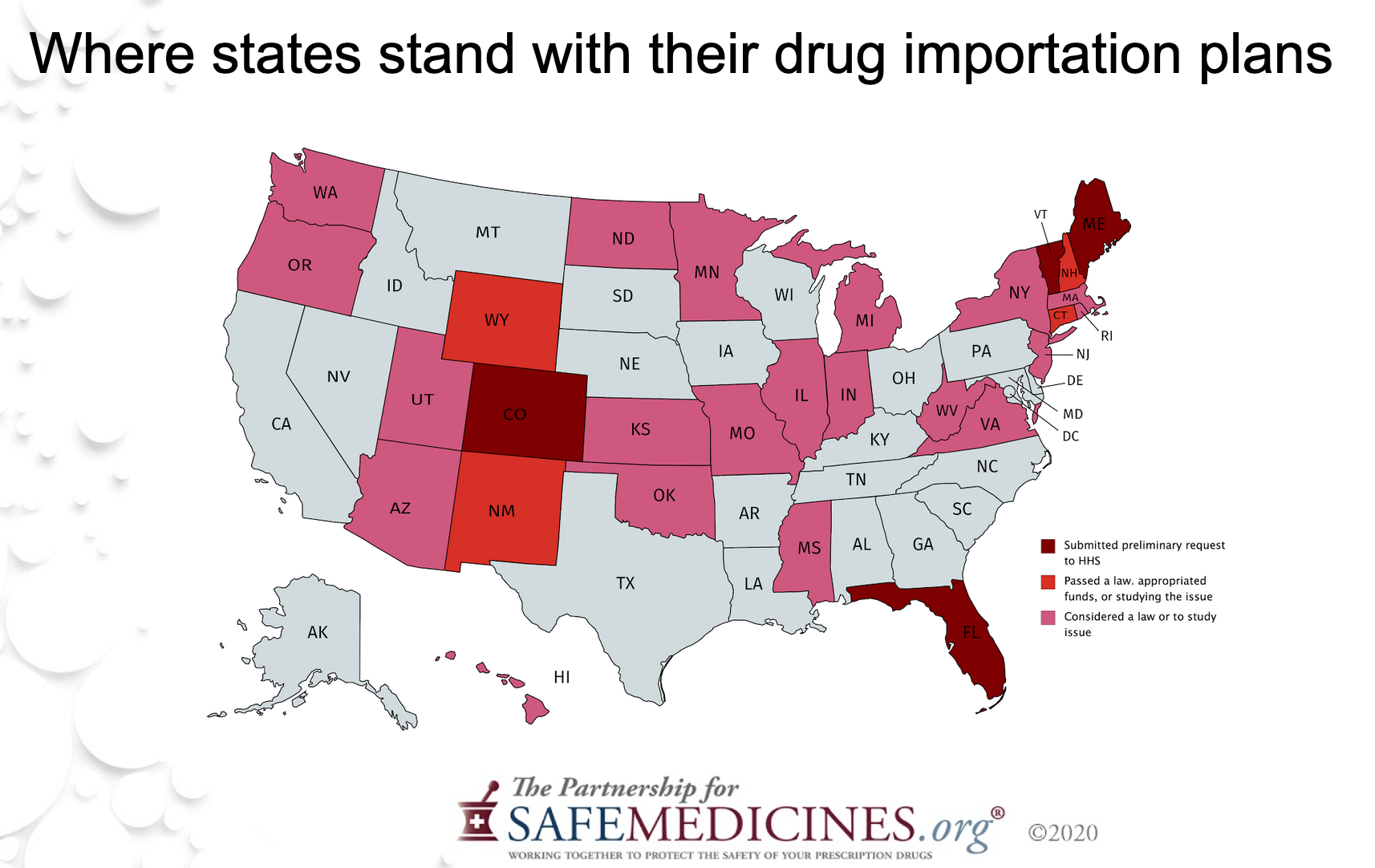Counterfeit Medicine: Crime and Policy, October 20, 2020
Trends in Counterfeit Pills
Fake Fentanyl Pills Found in 50 States
In 2015, The Partnership for Safe Medicines began to see reports about people dying after taking fentanyl pills made to look like Xanax. Within a year fake pills and the deaths associated with them spread throughout the country. In September 2017, we released our first-of-its-kind report 40 States and Counting: The Deadly Combination of Imported Fentanyl and Counterfeit Medicines warning that counterfeit pills were spreading across the country. As the months have ticked by, the number of states in which we have found reports of pills or deaths attributed to pills has continued to rise.
With the discovery of counterfeit oxycodone pills made with fentanyl in Hawaii this month, we hit a grim milestone: There are lab-confirmed counterfeits with fentanyl in every state. For all practical purposes this epidemic has completed its saturation of the US.
Cartels and Counterfeits
COVID-19 pushed the opioid crisis off of the front page, but it didn’t end the crisis. As a global trend, for the last 18 months the nature of the global fentanyl business has been moving to Mexico. Late last year the DEA’s National Drug Threat Assessment report said that seizures of Chinese made fentanyl were down and the new source was Mexican cartels, specifically the Sinaloa and the Jalisco New Generation cartels. Large quantities of both raw powder and finished pills have spiked all across the southern border. Looking ahead, the DEA says that Chinese efforts to restrict precursor chemicals used in making fentanyl may be contributing to a rise in India as a supplier of fentanyl and fentanyl ingredients.
When things began to lockdown in March, closed borders made it more difficult for cartels to ship their illicit goods over the border, but cartels are creative: Customs and Border Protections has intercepted counterfeit pills in fake burritos, ceramic tiles, and corsets in the last year.
Many Americans think that saving money at Mexican pharmacies is safe and the state of Utah even has a policy of sending patients on expensive medications to Mexico to fill their prescriptions. But pharmacists in Mexico have raised the alarm that they are being forced by the cartel to purchase fake pills made by cartels and sell them in their pharmacies to the public. By the pharmacists' own estimation, six out of ten medications they are selling are counterfeits.
Read the complete DEA report. (Discussion about fentanyl begins on page 9.)
More Diversity in Counterfeit Pills
In 2019 we collaborated with the National Association of Boards of Pharmacy and the National Association of Drug Diversion Investigators on a report warning that illegal pill presses pose a threat to all Americans, because they give counterfeiters the ability to adapt to the market. When you’re done making oxycodone you can pivot to Xanax. When you don’t have access to fentanyl, you can use methamphetamine instead. We predicted that the spread of pill presses meant that we were now dealing with a innovative industry of counterfeiters that would change methods and ingredients to satisfy market demand.
We have never been more disappointed to be right. We’re now seeing fentanyl pills pressed into very unusual formats. In August, police in Ohio discovered counterfeit Aleve and law enforcement in Arizona seized fake baby aspirin and metformin. All of these pills tested positive for fentanyl.
We suspect distributors are using these formats to camouflage pills, not because there’s a lot of money in fake baby aspirin. The potential for someone to die because the pill looked like something they know and trust, however, is significant.
Noteworthy Crimes in 2020
Aaron Shamo Sentenced to Life
The biggest case of the year just had its sentencing last week. From at least December 2015 until he was arrested in Cottonwood, Utah in November 2016, Aaron Shamo ran an enormous drug manufacturing ring that sold hundreds of thousands of counterfeit pills. The pills were either counterfeit oxycodone pills made with fentanyl or fake Xanax made from alprazolam purchased abroad. Agents seized 70,000 counterfeit pills made with fentanyl, 25,000 fake Xanax, over $1 million in cash, and industrial pill pressing equipment. Later, they discovered $429,000 in cash at this parents' house, and a substantial cache of bitcoin.
A sentencing memorandum filed by prosecutors in federal court in September 2020 stated that Shamo’s drug ring shipped fentanyl pills to every state in the union. Data retrieved by federal agents of Shamo’s sales on AlphaBay showed he sold significantly more than 458,000 fake oxycodone pills. No one will ever be able to say how many lives Shamo destroyed, but to quote federal prosecutors, his “prolific distribution of drugs led to incalculable loss and suffering.”
After being found guilty at trial, Shamo was sentenced to life in federal prison on October 15, 2020.
Counterfeit Adderall Made With Meth
As we predicted, counterfeiters with pill presses saw an opportunity in Adderall. It’s a medicine that is used heavily by young people who, as we know, don’t always possess the greatest of judgment. They often trade pills amongst each other without regard for the danger of a broken supply chain. Because of the limits on access to Adderall, counterfeiters began pressing fake Adderall with methamphetimine.
The most recent state to issue a warning was Iowa. What the user does not know is that these Adderall pills are just straight-up meth.
In fact over the past 24 months we’ve found reports of fake Adderall made with meth in seven states.
Texas has had two notable cases involving fake Adderall pills. In December 2019, a lecturer at The University of Texas was indicted for her role in a counterfeit Adderall pill ring. Just two months earlier, a defendant in another case received a 30-year prison sentence for selling counterfeit pills, including Adderall made with methamphetamine. The proximity to students who often abuse Adderall as a study aide is notable, along with the enormous quantity of pills seized: over 350,000!
Project Javelin
In June, Ontario Provincial Police announced a major fake pill drug ring bust and seized a historic amount of fentanyl - over 123,000 fake pills made to look like legitimate Teva‐Oxycocet and 154 pounds of fentanyl powder. The investigation began in April, with agents making their first arrests in British Columbia on May 27th. Three days later, law enforcement shut down the Ontario-based part of the ring. These traffickers even went to far as to duplicate the labels that would be found on real Teva-Oxycocet bottles.
These are not individual patient bottles. We found this case notable because they were specifically making pharmacy-sized wholesale packaging. While the Canadian drug supply chain within Canada is pretty strong and pharmacists are diligent, the fact that they were targeting wholesale packaging is a trend we should all pay attention to.
Captagon in Italy
In the same month, police in Italy seized 84 million Captagon pills containing amphetamines that were produced by ISIS in Syria. Authorities in the port of Salerno found the pills, worth over $1 billion, inside three shipping containers. Counterfeit medicine is a financial bonanza for criminal organizations and terrorist groups, who are always looking for additional revenue streams.
Fake Hepatitis and Cancer Treatments from Ukraine
Another case that we really love is the bust of Ukrainian counterfeiters called Healthy Nation. They were selling counterfeit versions of Epclusa, a drug that treats Hepatitis C, and Abraxane and Keytruda, drugs used to treat different types of cancer. Because the criminals operated out of Ukraine where the U.S. has no extradition treaty, the fact that these criminals are currently sitting in a US jail awaiting sentencing is a real testament to great police work.
We think this is one of the most interesting crimes we’ve studied this year. The full story of this crime is so good we’re doing an entire episode on it. They are set to receive their sentences next month, so look for our episode on this crime then.
#CovidScams
The global pandemic has affected all of our lives, and scammers were some of the first people to quickly pivot to take advantage and prey on people’s fears. This chart shown at left is from Krebs on Security. It shows the number of domain names being registered from January 13, 2020 to the beginning of April. The blue and red lines represent how many websites each day were being registered with either “Coronavirus” or “COVID” in their names. The blue line represents websites with low risk score of being scams while the red line is for websites that most likely are scams. Legitimate organizations were always a few weeks behind and thousands of daily registered domains behind the scammers.
What sort of scams you ask? Short answer: all of them. Fake and substandard PPE, preventatives that won’t stop anything, bogus cures and vaccines that don’t exist yet. People lost money through scams made via the phone, text message, email, and ads on the Internet.
Fake vaccines: Even before there was any vaccine for COVID-19 that you would want to take, we saw criminals selling fake COVID vaccines online. There have been two instances thus far of criminals selling fake vaccines online, and probably more we never saw.
Fake test sites: Long time counterfeit crime buffs remember when it was discovered that someone had faked an entire Apple retail store in China. This technique has come to the pandemic. A fake drive thru COVID-19 testing site popped up in Louisville, Kentucky earlier this year. They were not sponsored by any health authority, hospital, or health plan. They didn’t have any partner laboratory processing their tests, and when confronted media and a city councilman they packed up and ran. But they were collecting money and swabbing people. We don't know how much they got away with before being caught.
Dangerous hand sanitizer: This final story is one we’ve been trying to cover for months: hand sanitizer made with methanol. Methanol is not supposed to be in hand sanitizer and it can kill you if you drink it. Because consistent, science-led public health education in America is weak right now, poison control centers all over the country are reporting people drinking hand sanitizer and when it contains methanol it can be fatal. Additionally the FDA has caught a number of vendors packaging their hand sanitizer in ways that closely resembles food packaging, which adds to the danger of poisonings.
Every time there’s a lull the PSM research team starts to prepare a report on hand sanitizer with methanol, only to have the FDA publish a public warning about yet another dangerous product on the market.
Policy Issues
The PSM team loves counterfeit drug policy and we follow and take positions on legislation that would make patient safety better or worse. On our website, you can find our legislative agenda, which lists all the positions and legislation we’ve taken a position on.
Share our one-pager about domain name reform to help others understand why this is important.
Domain name reform
A domain name is the shorthand name like "safemedicines.org," and you type that into an address bar so that you don’t have to type a numeric internet address. Knowing who owns a domain name is an important tool for law enforcement, activists and the public. It's like public records of land ownership: Can you imagine being a detective investigating a dozen drug stash houses in your city without being able to find out who owned the properties? Now imagine investigating a fake online pharmacy network of 200 cookie cutter websites without being able to see who owned their domain names.
Limited access to this information is an unfortunate side effect the European Privacy Directive, and we need transparency restored to how it’s been since nearly the founding of the Internet. In addition, some domain name vendors have started catering to criminal enterprises and refuse to turn off domain names even if presented with evidence of a crime, much like some banks in the Caribbean cater to money launderers. Changes in existing law to create a “lock and suspend” obligation for domain name sellers is a key tool for fighting crime.
PSM is a member of the Coalition for a Secure and Transparent Internet, which is working on both these issues.
Interdicting and investigating fentanyl cases
Counterfeits on Social Media: The sale of counterfeit medicines through social media and online platforms is not a new problem and it continues to be deadly. Just this year we met a family whose son was killed by a deadly fentanyl pill sold by a Snapchat drug dealer. We don’t believe the platforms when they say there is nothing they can do to find and restrict this kind of criminal behavior. They currently enjoy legal liability protection from being held responsible for this activity.
While that liability protection is important to protect free speech, we also believe it is not absolute. We support creating a duty to report counterfeit drug selling activity for online platforms. We look forward to seeing the legislation that comes out in the next Congress on this issue.
Legislation in the 116th United States Congress
The Criminalizing Abused Substance Templates Act: You know the danger of a widespread cottage industry of pill presses, and back in 2019 our board member Sam Louis came up with a creative solution: increase penalties for crimes involving controlled substances if you are convicted and you had a counterfeit pill mold in your possession. These bills (H.R. 4510 and S. 2573) have bipartisan support and they carefully avoid the tricky issue of convincing prosecutors to bring new charges; it only kicks in if you are convicted.
The Providing Officers With Electronic Resources Act: PSM has partnered with law enforcement as they are on the front lines of interdicting counterfeit drugs, and we support giving law enforcement the tools to combat them, especially counterfeit fentanyl pills. We proudly support the POWER Act (S. 954). This bill would provide grants to state, local and tribal law enforcement to purchase chemical screening devices to detect illicit drugs, and train personnel to use chemical screening devices in order to enhance law enforcement efficiency and protect law enforcement officers.
The Blocking Deadly Fentanyl Imports Act: With dozens of chemical analogues, the fentanyl problem, including the importation of fentanyl from foreign countries into the United States, is going to be with us a long time. As such, PSM is pleased to support two bills (S. 400 / H.R. 1098) to help combat this crisis. The bills will hold countries accountable that don’t do enough to stem fentanyl shipments. Additionally, the bills will close the loophole for illicitly manufactured fentanyl and study the production of illicit fentanyl in foreign countries.
The Safeguarding Therapeutics Act: Inspectors in international mail facilities have said they have more power to destroy counterfeit medicines than they do medical devices because of an oversight in the Food Drug and Cosmetic Act. And while people who smuggle counterfeit medical devices often make other mistakes that allow inspectors to seize and destroy them, sometimes it’s a challenge. With the rise in #covidscammers making fake medical devices of all kinds in record quantities, this is a critical fix right now. It’s a simplie edit to the Food Drug and Cosmetic Act.H.R. 5663 passed the House via voice vote. There is also a bipartisan companion bill in the Senate, S. 4225. We hope this bipartisan non-controversial pandemic priority can pass this year or quickly next year.
Drug Importation
Unfortunately, the policy that people love to talk about the most that is also most likely to put a giant safety hole in the supply chain is Canadian drug importation. We focus on it because it’s been tried before and endangered patients. It has never saved the money it keeps promising to. It’s currently being implemented in eight states and has been debated in 20 others.
Just a few weeks ago HHS and FDA finalized the federal rules on how a bulk Canadian drug importation plan can function, and drew out clear requirements. Florida, Colorado, and New Mexico are all racing to submit applications to obtain permission from HHS and FDA to start their bulk programs. We expect at least two to finish this year.
Some states have figured it out, though. Both North Dakota and Wyoming have had outside consultants look at this issue and recently found that these programs can’t possibly work. Both states avoided spending a lot of hard earned tax dollars that Colorado, New Mexico, and Maine are about to set on fire.
The most frequent question I get at the end of my presentations is “If this is so doomed, why do politicians keep proposing this?” It’s because all the realistic proposals to lower health care costs are as complicated as our health care system itself, and just as politically difficult.
Politicians like these ideas because they are easy to understand and take long enough to implement they expect not to be around when they fail.
But bad policy is dangerous when it touches real medicine. We will be doing everything in our power in 2021 to shine a light on these policies and document their dangers.
